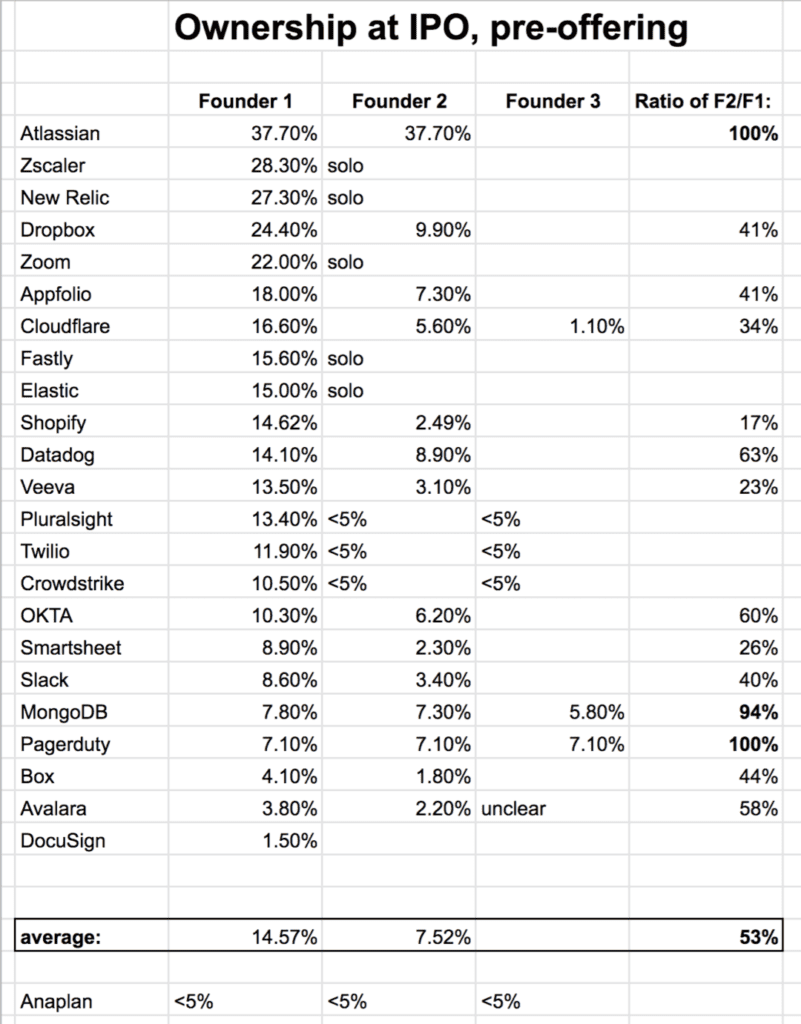Do you need a co-founder?
We took a look at this a while back on SaaStr, and found that roughly 20% had a “core founder” or solo founder. What I mean by a core founder is someone that owned 5x or more equity than the next founder. E.g., companies like Elastic, Fastly, and Twilio weren’t literally solo founded, but in the end basically ended up that way. More on that here:
Y Combinator took its own look at its unicorn and top companies and found only 4 out of its 100 top companies didn’t have a co-founder. Just 4%.
There are no rules here. Zscaler had no co-founder. New Relic has no co-founder. Zoom had no co-founder. You can hear Eric Yuan’s thoughts here:
And I can tell you, it’s better to go solo than have a not-committed co-founder. The reality is, many of us find what I call “an ex-post facto co-founder”. Someone that wasn’t literally there on Day 1, but acts like it later. Close enough. That carries some of the burden along with them.
Maybe just make them a co-founder officially. They deserve it.
A co-founder isn’t someone that happens to be there on Day 1. A co-founder is someone that never quits, is 110% committed. And carries a material amount of the burden. The burden of making it great.
A quick look at the equity stakes and number of founders in leading Cloud companies here:


